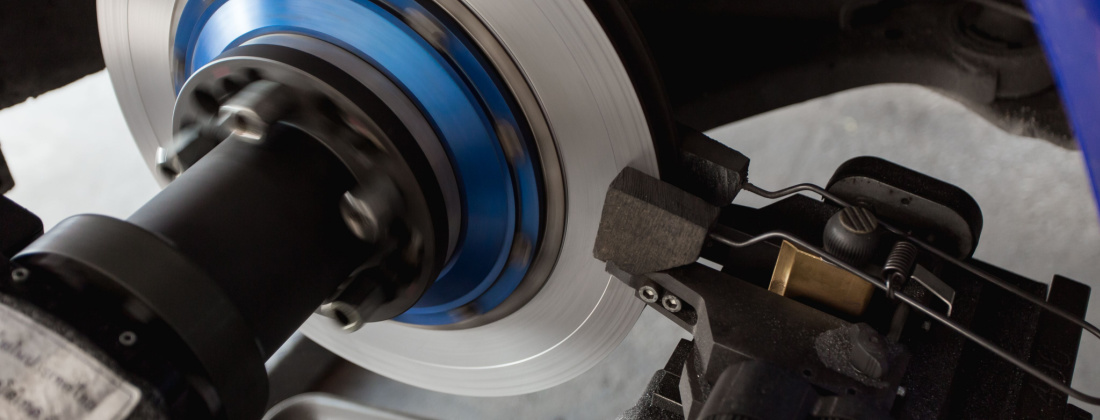Replace Your Brake Rotors When You Replace Your Brake Pads
November 3, 2022
Maintenance

If you have recently had a brake job done on your car, you may be surprised to see that new rotors (discs) were included. You probably thought the mechanic was trying to rip you off. No, you were not taken advantage of, in fact, quite the opposite.
The four circular discs that are linked to each wheel are known as brake rotors . The purpose of rotor design is to convert kinetic energy (motion) into thermal energy (heat). When you use the brakes on your vehicle, the master brake cylinder signals your caliper to push your brake pads tightly against the broad surface of the rotors. The resistance to the wheel’s spin caused by the friction between the pads and rotors slows the wheel’s rotation and causes the car to stop moving.
Older versions of brake rotors were intended to survive through two or three brake pad replacements. However, current models can deteriorate just as quickly as your brake pads. As a result, most mechanics recommend that drivers should install new rotors whenever they replace their brake pads. Typical symptoms of needing new brake rotors include:
- the sound of grinding when braking
- Pulsing or shaking when stopping
- Ridges or grooves on the rotor’s surface that you can feel
- rotors with reduced visibility due to rust or wear
- reduced brake efficiency
Squeaking or squealing brakes, a brake light turning on, swerving to one side when braking or poor brake effectiveness that results in longer stopping distances are additional indications that you require brake service, which may or may not be related to the rotors. These signs could be caused by your brake fluid, master cylinder, calipers, or brake pads. It is best to have your brakes checked properly by a mechanic as soon as you notice anything unusual with them.
The cost of new rotors is usually the same as the cost of turning them.
Front-wheel drive vehicle brake rotors are reasonably priced. The cost of rotating a rotor ranges between $15 and $25 per rotor. On the other hand, new rotors typically cost $20-$30 per rotor, and you will have far fewer problems and a much longer rotor and brake pad life span.
New brake rotors improve stopping performance.
Brake rotor replacement is a low-cost way to improve braking performance. New brake rotors can increase braking distance by as much as 30% because they better distribute braking force over a larger area.
New brake rotors also improve your vehicle’s steering response and braking stability. These enhancements increase the dependability of your brakes. As a result, you can drive with greater confidence and less risk of a collision.
New brake rotors can reduce noise.
The brake pads and rotors in your car are among the noisiest components. When they wear out, they make a noise that is amplified inside your vehicle.
New brake rotors are an excellent way to reduce interior noise. This is due to the fact that brake rotors are made of a variety of corrosion-resistant materials.
Old brake rotors can damage new brake pads.
If the old rotors are left on the vehicle, the brake pads may wear unevenly. This can result in the brake pads being replaced prematurely, which will be costly.
Bottom Line
New brake rotors have a lot of benefits. By replacing both the brake pads and the rotors at the same time, you’ll ensure that your car stops safely and smoothly. So if you’re due for a brake pad replacement, be sure to also replace your brake rotors!
If you are looking for a tire repair or replacement center, look no further than Trail Tire. We can take care of any of your vehicle needs easily with a simple appointment. Call us or schedule your appointment online today!
Back

